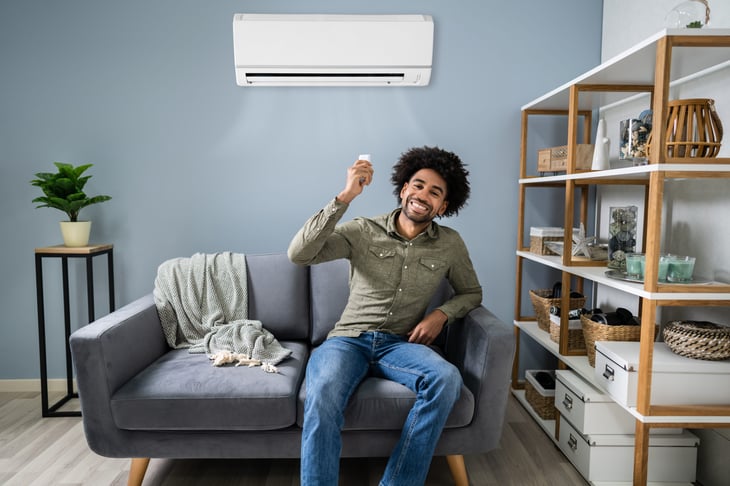
Editor's Note: This story originally appeared on Point2.
Most modern homes are fitted with some form of HVAC system. So, as a homeowner, there’s a good chance that you’ll need to come to grips with yours at some point.
Regular HVAC maintenance is essential to keeping your energy bills down and your home comfort levels high. Not only that, but a poorly maintained system can be bad for your health over time.
Fortunately, keeping on top of HVAC maintenance doesn’t have to be a struggle. In this guide, we’ll tell you all you need to know before looking at the warning signs that may indicate your system requires repairs or even replacement.
What Is an HVAC System?
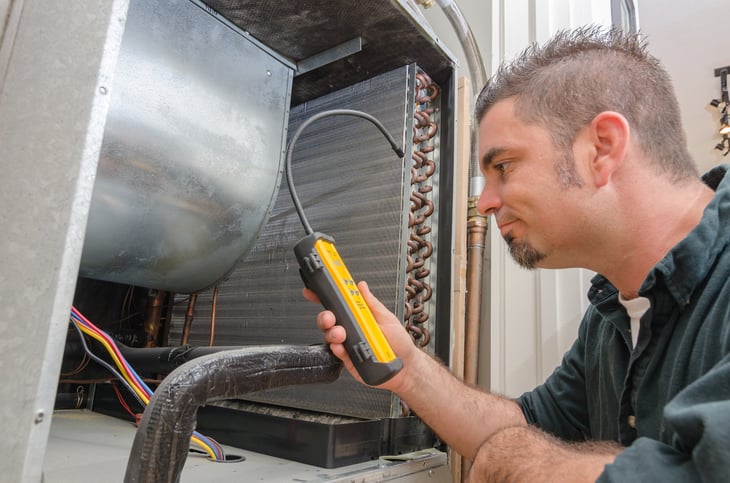
HVAC is an acronym for heating, ventilation and air conditioning, and the term is used to describe a complete home comfort system.
Such a system can heat and cool your home by distributing warm or cool air throughout the property via a series of ducts and vents. In addition to maintaining a comfortable temperature, many systems also provide improved air quality.
In this way, HVAC systems differ from standalone air conditioning units and tend to comprise several components. These typically include:
- An air conditioner
- Heat pump
- Furnace
- A series of ducts or pipes and vents
- Thermostat
- Air handler
Additionally, some units also offer built-in air purifiers and humidifiers, although this is typically dependent on your location or the conditions in your building.
How an HVAC System Works
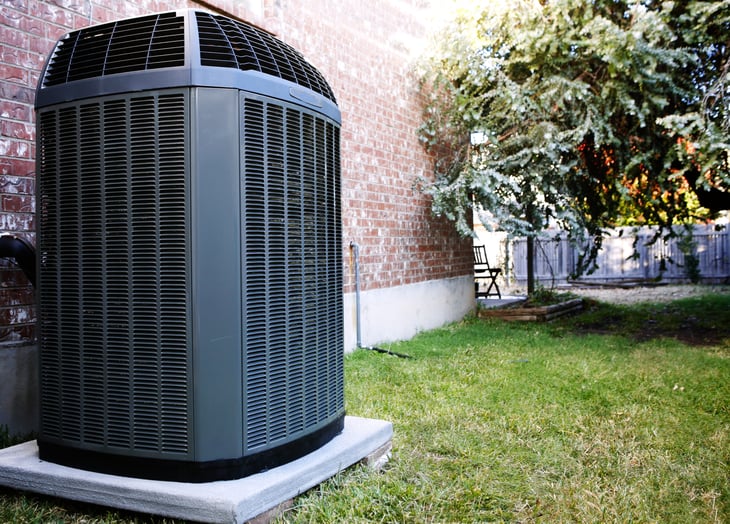
The purpose of any HVAC unit is to maintain your ideal home temperature, keeping you and your family comfortable.
This is controlled via the thermostat, which communicates with the other HVAC components.
When it’s too hot, the AC unit will kick in and cold air will be distributed throughout the home via the ducts. If your home is too cold, the furnace fires up and warm air circulates until the desired temperature is reached.
HVAC Maintenance Tasks To Keep on Top Of
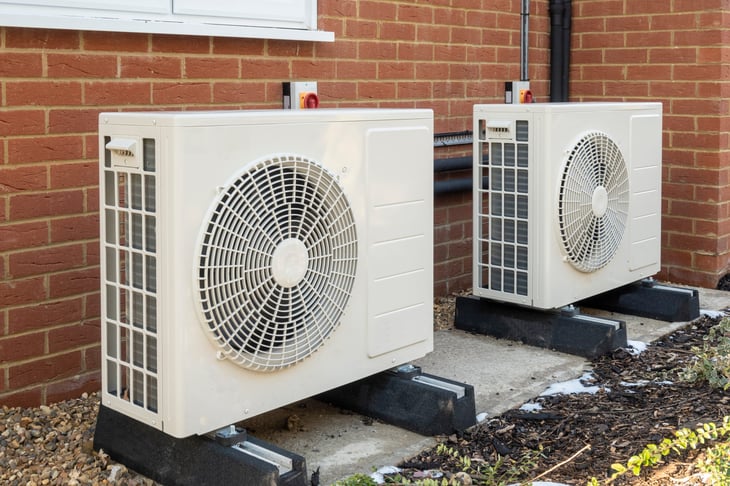
Regular maintenance of your HVAC system is essential in increasing its lifespan, reducing your energy bills, and improving the comfort of your home.
1. HVAC Filter Replacement & Cleaning
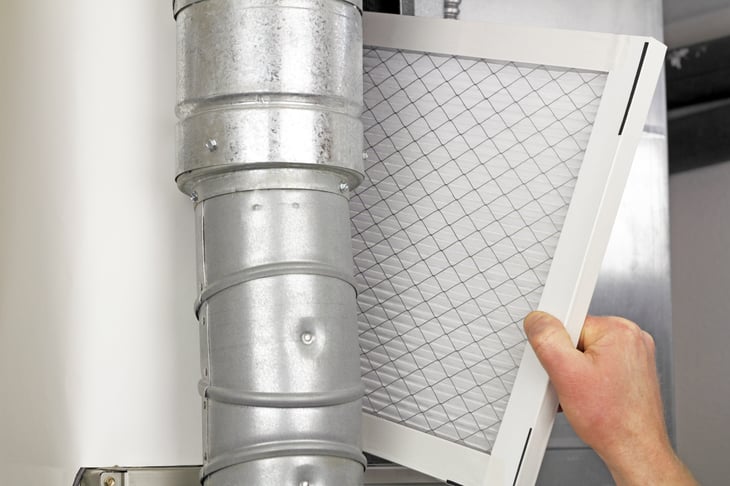
Filters are an integral part of any HVAC system and prevent dust, dirt and mold molecules from entering the air you and your family breathe.
Failure to keep them clean and functional can lead to health problems and higher energy bills as the air struggles to flow through blocked filters.
Fortunately, replacing a filter is one of the most straightforward maintenance tasks. Usually, HVAC filters should be checked and either cleaned or replaced every 30 days.
However, when the system is in regular use, such as during the height of summer or winter, you may find you need to replace the filters as often as twice a week.
2. Seasonal Cleaning
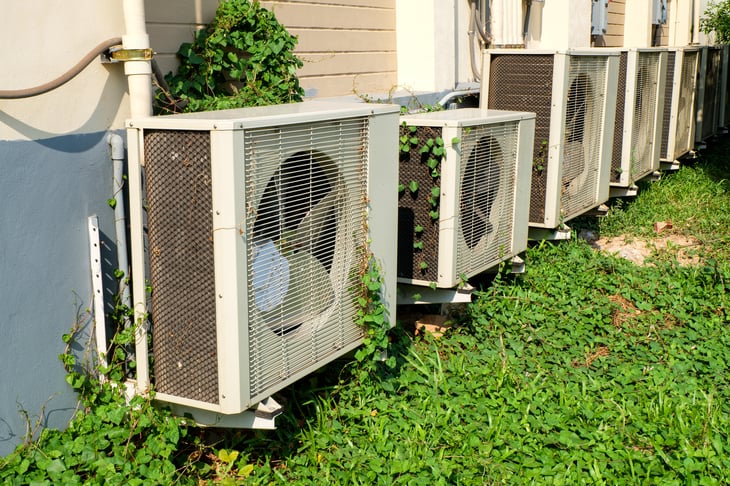
Both AC units and furnaces can become dirty inside after a period of inactivity. So, it’s essential to check inside and clean everything before the season starts.
For AC units, check them after winter and look for build-ups of dust, oily residues, and even the presence of mold. Furnaces should generally be checked after summer.
Also, ensure that the outside unit is kept clean and free from debris, such as fallen leaves.
Ensure that there’s at least a 2-foot gap around the unit to allow airflow, and trim any plants encroaching on this space whenever necessary.
3. Monthly Checks

Once a month, it’s a good idea to quickly inspect the entire system to prevent minor issues from becoming major problems.
- Check the batteries in the thermostat.
- Check all vents/registers for signs of mold.
- Check all vents/registers for blockages.
- Ensure the condensate system is draining correctly.
- Inspect the flue system.
- Ensure the outdoor unit is clean and sitting on a level surface.
- Remove clutter around indoor components.
When To Repair or Replace Your HVAC System
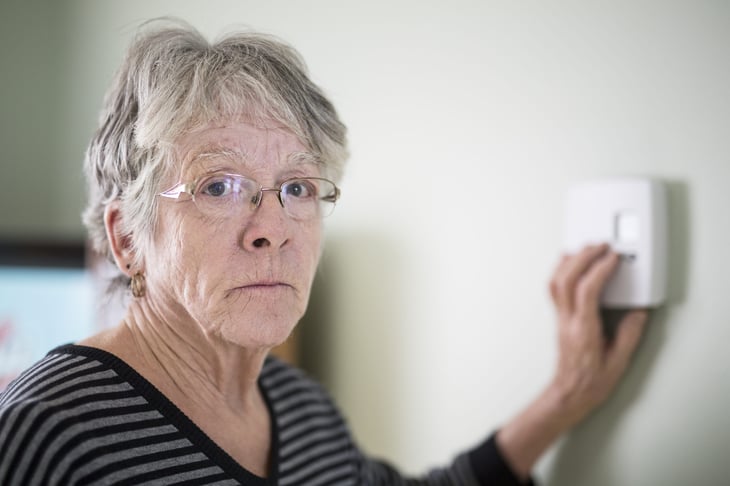
A well-maintained HVAC system will always outlive one that hasn’t had a lot of love.
But knowing whether yours needs replacing or simply repairing can be difficult, especially if you’ve just moved into a new home.
Fortunately, several indicators can help you decide whether to call out an emergency HVAC repair service or have the system replaced entirely.
1. Lifespan
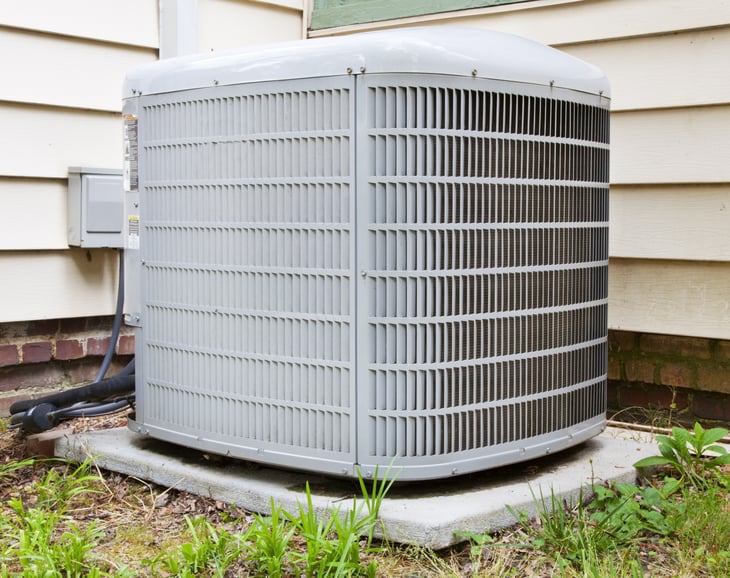
Generally, most HVAC systems have a lifespan of between 10 and 25 years, depending on the brand, whether it’s been regularly maintained, and if the system is the correct size for the space.
Typically, all the major components share a similar lifespan, so if one fails after 10 years, you can expect the others to follow soon, meaning it could be time to replace the entire system.
2. Energy Efficiency
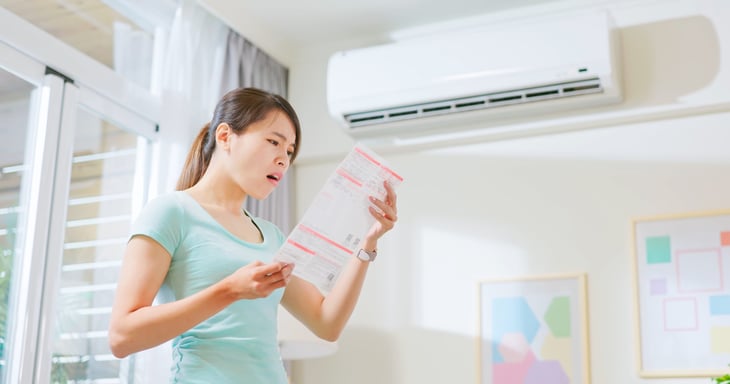
One surefire way to keep tabs on how your HVAC system is operating is to check your energy bills. If they’ve steadily been going up over the past few months and energy prices in general aren’t rising, your system could be beginning to struggle.
If this is the case, it’s unlikely that you’ll need to replace the system outright. But, it is worth calling an HVAC service professional to take a look.
More often than not, a few minor repairs can make a huge difference.
3. Unsafe?
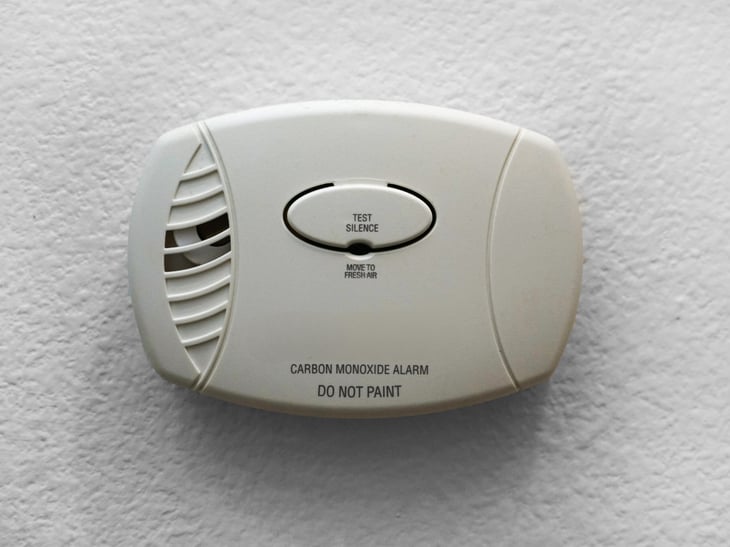
If your HVAC unit has become unsafe, it’ll almost always need replacing, and soon. Excess moisture and leaks can lead to water damage and cause mold to fester in hard-to-reach places.
Meanwhile, if the heat exchange in your furnace cracks, deadly carbon monoxide gases can enter your home.
Keep an eye out for damp patches, and be sure to install and regularly check a carbon monoxide detector.
4. Cost of Repairs vs. HVAC Replacement Cost
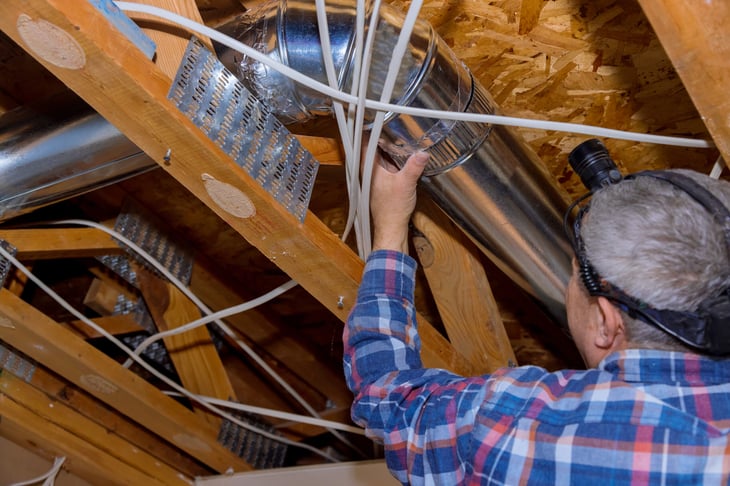
The cost to replace HVAC systems can be hard to swallow, but in some cases, the necessary repairs may be even higher. The difference is that a new system is a one-time payment, while repair fees will be spread over a more extended period.
The following calculation can help you make your choice: Cost of repairs multiplied by the age of your HVAC system.
If the result is lower than the cost of a new system, it’s worth making the repairs. If it’s higher, then it’s probably a good idea to replace it.
5. Coolant Type

Older HVAC models use R-22 Freon coolant, which has been phased out by the government. As a result, the price of R-22 has rocketed, making repairs to such systems increasingly expensive.
So, if your older system needs repairs, it could be worth switching to a more modern system that uses R410A coolant.
6. Frequency of Repairs
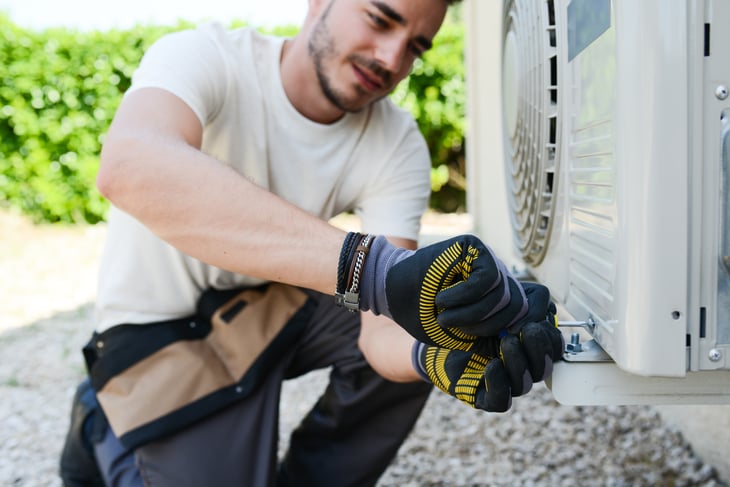
If you find yourself calling out an HVAC repair service every month or so, there’s a good chance your system is coming to the end of its lifespan.
However, if you’ve only had to make the occasional minor fix, future problems can probably also be repaired.
7. Reduced Comfort

If your HVAC unit is struggling to keep up with temperature changes, leaving your home too hot or cold for extended periods, there’s definitely something wrong with it.
More often than not, at this point, it will need either significant repairs or replacing altogether.





Add a Comment
Our Policy: We welcome relevant and respectful comments in order to foster healthy and informative discussions. All other comments may be removed. Comments with links are automatically held for moderation.